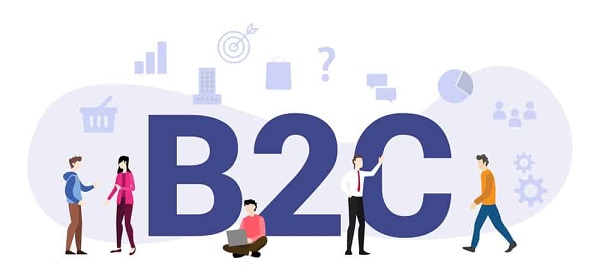
Navigating the World of B2C Marketing: Strategies for Success
The landscape of Business-to-Consumer (B2C) marketing is ever-evolving, driven by dynamic consumer behaviors and technological advancements. In this comprehensive guide, we explore the intricacies of B2C marketing strategies, their implementation, and how they are reshaping the way businesses interact with their customers.
Understanding B2C Marketing
B2C marketing focuses on promoting products and services directly to individual consumers. Unlike Business-to-Business (B2B) marketing, which revolves around logical process-driven purchasing decisions, B2C marketing appeals to consumers’ emotional responses. The goal is to connect, engage, and persuade the end consumer to purchase the product or service.
This form of marketing employs various techniques and channels, including social media, online advertising, email marketing, and content marketing, to create brand awareness and drive consumer action.
Evolution of B2C Marketing Strategies
Shift to Digital Platforms
The digital era has revolutionized B2C marketing strategies. The rise of social media, e-commerce platforms, and digital advertising has provided marketers with new avenues to reach their audience more effectively and personally.
Personalization and Customization
Modern B2C marketing has seen a shift towards personalization and customization. Businesses are leveraging data analytics to understand consumer preferences and tailor their marketing messages to individual needs and desires.
Integration of AI and Machine Learning
Artificial Intelligence (AI) and machine learning are playing a pivotal role in transforming B2C marketing. These technologies enable predictive analytics, targeted advertising, and improved customer experiences.
Key Components of Successful B2C Marketing
Successful B2C marketing involves understanding the target audience, creating compelling content, and utilizing the right channels for distribution. It’s about storytelling that resonates with the consumer and creating an emotional connection with the brand.
Effective use of SEO, social media marketing, and email marketing are crucial components that help in reaching out to a wider audience and building brand loyalty.
Challenges in B2C Marketing
B2C marketers face several challenges, including adapting to rapidly changing consumer trends, managing data privacy concerns, and dealing with increased competition. Staying ahead requires agility, creativity, and a deep understanding of consumer behavior.
Another challenge is ensuring a consistent and seamless customer experience across all digital platforms, from websites to social media channels.

Measuring the Success of B2C Marketing Campaigns
Measuring the effectiveness of B2C marketing efforts is crucial. Metrics such as conversion rates, website traffic, social media engagement, and return on investment (ROI) provide valuable insights into campaign performance.
Continuous analysis and optimization based on these metrics are essential for refining strategies and achieving better results.
The Future of B2C Marketing
The future of B2C marketing lies in embracing technological advancements, understanding the evolving consumer landscape, and creating authentic, personalized experiences. As the digital world becomes more integrated into consumers’ lives, B2C marketing will continue to be an essential tool for businesses to connect, engage, and grow their customer base.
Staying informed and adaptable to new trends and technologies is the key to success in the competitive world of B2C marketing.
